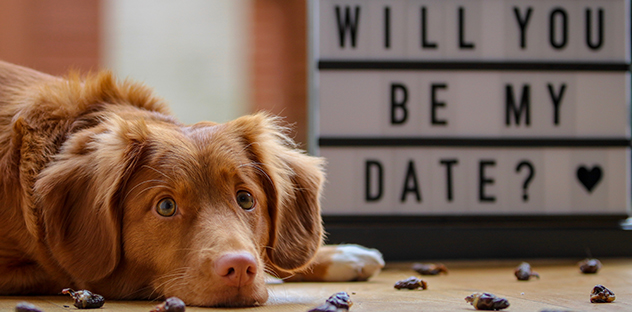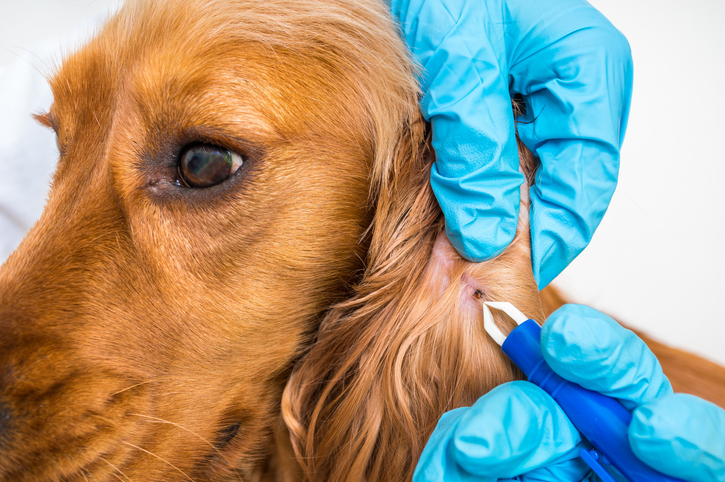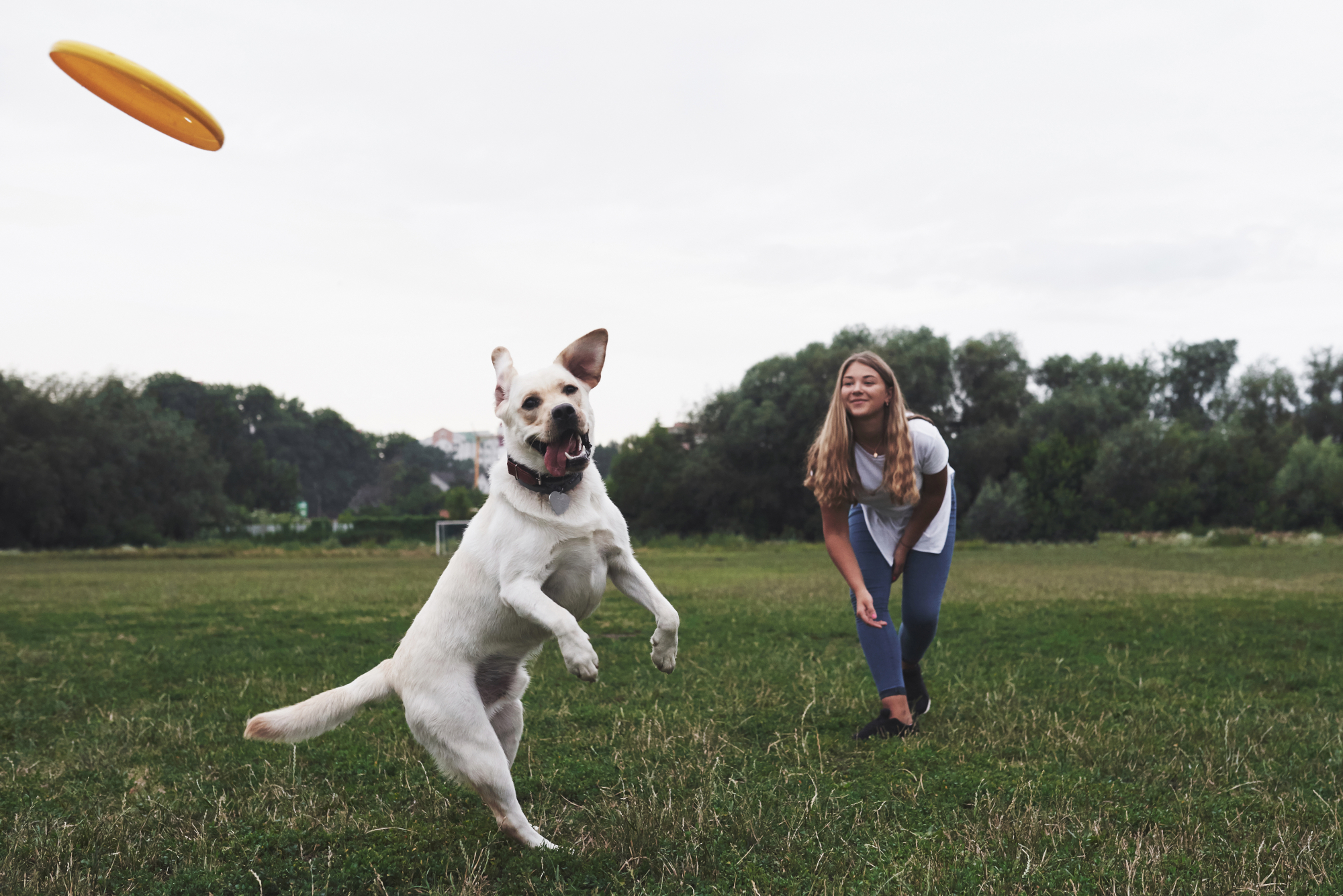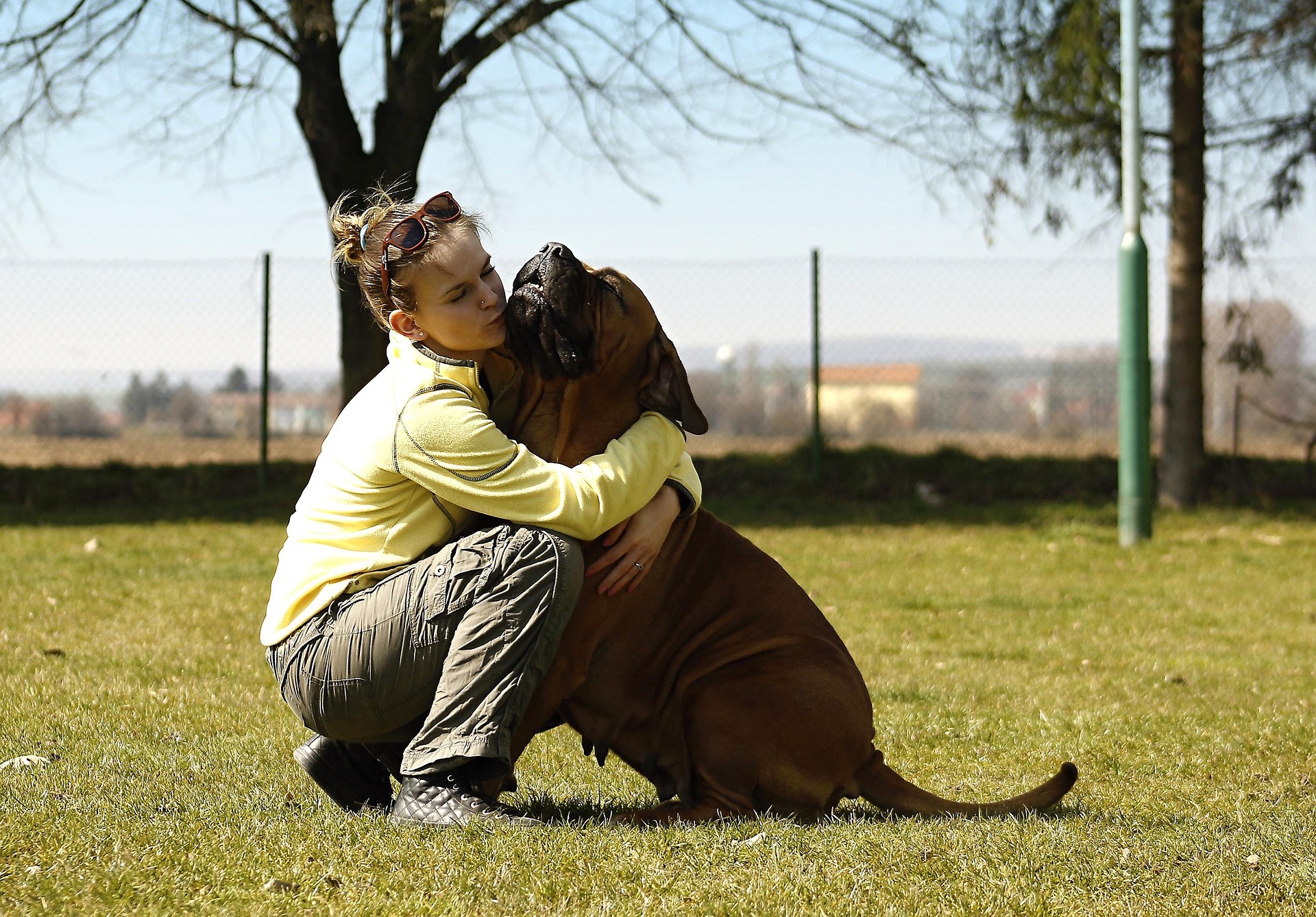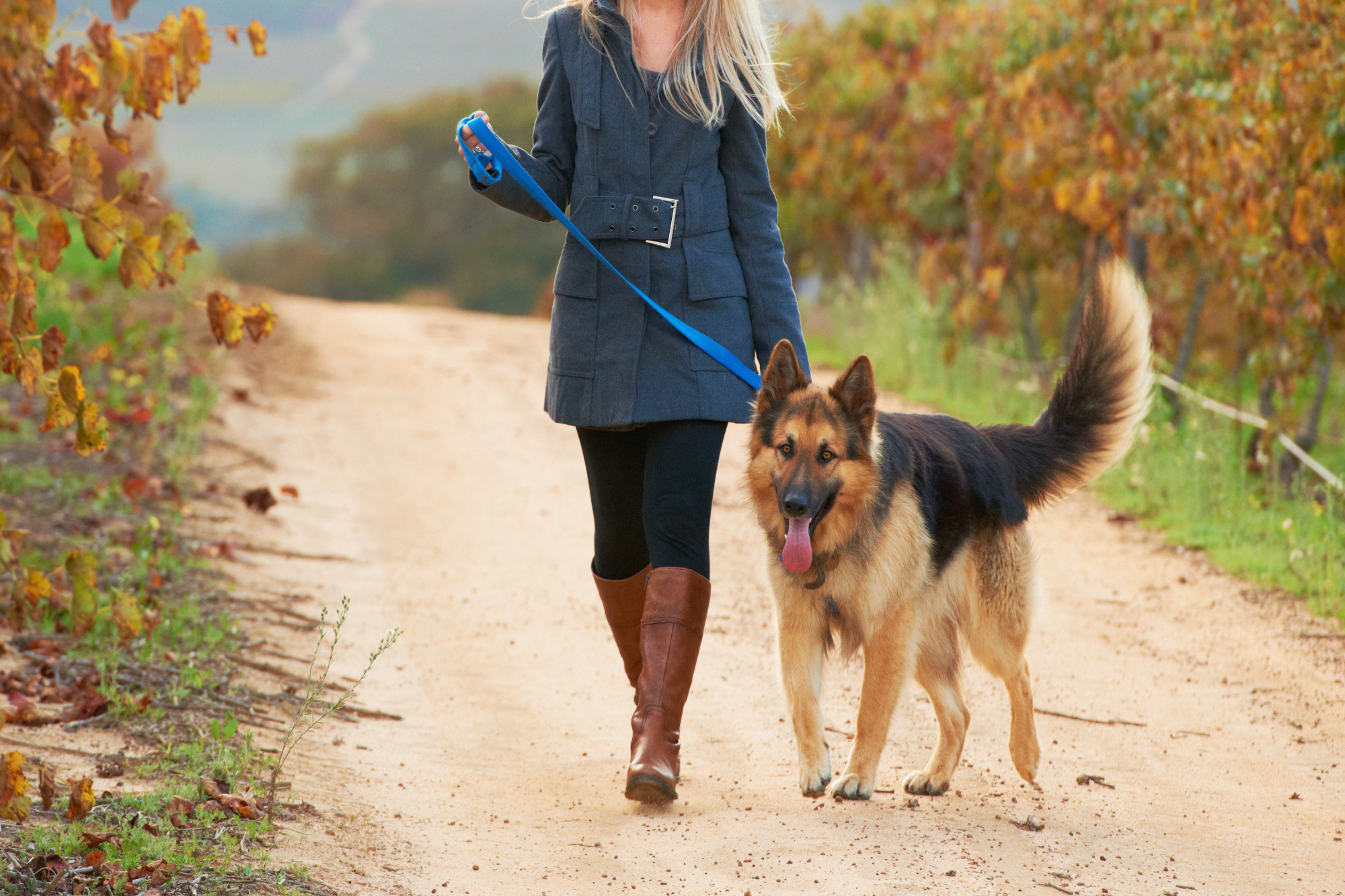Be sure to check out, and take to heart, these Valentine’s Day safety tips for dogs. After all, what animal loves you more than your pet dog? (Probably none!) Although your feelings may be mutual, you may not realize there are expressions of love that are great for humans but can actually harm your beloved pooch. We want to alert you to the dangers that lurk around this day’s festivities so that you can make an environment free of potential hazards for your furry friend. Some of these tips can be applied to other holidays too!
Keep Chocolate and Chocolate Desserts Out of Reach
You may love chocolate in all its forms and be thrilled to receive a box of chocolates from your sweetheart. You may also plan a celebration dinner for a loved one or for your family that includes a yummy chocolate dessert. However, make sure you dog can’t possibly reach any of these sweet delights. Your pet would probably love to eat chocolate and other tasty treats like you, but unfortunately chocolate is toxic for dogs, especially dark chocolate. Here’s why:
- Chocolate contains high levels of cocoa, caffeine, and theobromine (a dangerous food item for dogs).
- The smaller the dog and the darker the chocolate, the more dangerous it is. Theobromine will build up in a dog’s system because a pooch can’t metabolize it, and it can reach a toxic level that affects their nervous system and heart muscles.
- 1/2 ounce or 15 grams of gourmet or baker’s chocolate will cause toxic effects in a mid-sized dog. It only takes 2 ounces or 50 grams to be fatal to an average-sized one.
With that in mind, here’s what you can do:
- When cooking with chocolate or cocoa, keep it out of reach of your pooch and put it away as soon as you have finished using it.
- If you receive a Valentine’s gift of chocolates, eat what you want, then put the gift in a cupboard with a door that your dog can’t open or on a shelf he or she can’t possibly reach.
If your small dog nips a chocolate candy before you can whisk away the danger, expect to see a range of symptoms, such as vomiting and diarrhea.
Sugar-Free Candy & Desserts Are Not Get-Out-of-Trouble-Free Gifts for Pets
The problem with sugar-free candy and dessert is that they aren’t free of danger for your dog. Many of the familiar little candy-shaped hearts, gummies, and jellybeans we share on this holiday contain the sugar substitute xylitol, which is a polyalcohol compound that is highly toxic to dogs, as well as to cats and bunnies.
It’s best to keep all sweet treats and desserts away from pets. Stay on guard.
Toxic Plants and Thorny Flowers are a No-No
Any flower with thorns like roses are dangerous to dogs for obvious reasons. The thorns can cause a painful gash in the skin. Don’t assume your curious dog will never get close enough to be hurt by thorns or that he or she won’t try and eat a thorny flower. Are they beautiful and colourful and have a great odour? Assume your dog will be attracted enough to get nice and close to them.
Ordinary lilies won’t cause much more than a tummy upset for a dog but the striped Barbados lily is poisonous, and so are begonias, the California ivy, and aloe, among other plants. The advice to dog owners is, if plants or flowers come your way on Valentine’s Day, make sure to put them out of your dog’s reach.
Get Rid of Shiny Packages and Wrappings
You aren’t the only one who loves beautifully wrapped gifts with ribbons; your dog appreciates them, too. In fact, it is a good idea to quickly put away any cellophane, shiny wrapping, and ribbons before your dog decides to start chewing on them. Gift wrappings and ribbons that are swallowed can cause intestinal blockages, even if they aren’t made out of materials that make them unsafe for your pet to ingest.
Any candy wrap is particularly dangerous because the candy flavour remains on the wrap, and your pet, especially if he or she is still a puppy, may decide the wrapping is the next best thing to wolfing down the candy itself.
Here are a Few More Potential Valentine’s Day Hazards
- Candles – Your dog isn’t likely to mistake a candle for food (a young puppy might), even one that gives off the enticing odour of vanilla; however, candles and pets don’t mix well. There is always the danger of a curious pet or a happy one with a long wagging tail to come to grief with candles. Don’t leave them burning in a room without adult supervision or they may be knocked over by a curious animal.
- Alcohol – Your dog may very likely drink alcohol left in glasses or spilled on surfaces. Be sure and clear away containers that hold any alcohol and clean up spills right away.
- Sparkly Gifts – Yes, your pooch may love that sparkly necklace or ring as much as you do, and may decide to scoff it up if it is in reach. Your dog may even eat two or three of these sparkly items. Don’t take a chance; keep all such items out of reach too.
Watch for Signs Your Pooch Has Ingested Something Dangerous
If you suspect your dog has eaten something that isn’t intended for dogs, do your best to track down the possible suspects so that you can report what it is to your veterinarian or to an emergency vet. Also, try and figure out how much of it you think he or she has consumed. These are the signs:
- Vomiting and diarrhea
- Excessive panting
- Shakes and chills
- Seizures
- Laboured breathing
- Coma
- Weakness and confusion
- Difficulty standing or lack of coordination
You don’t want to spend your Valentine’s Day or evening in an animal hospital, or sitting up with an unwell dog. Stay alert to the dangers to which your pet may be exposed and incorporate safety measures into your celebrations. You can show your dog lots of love during this holiday with nothing more than your time and companionship.
Creative Commons Attribution: Permission is granted to repost this article in its entirety with credit to Hastings Veterinary Hospital and a clickable link back to this page.

